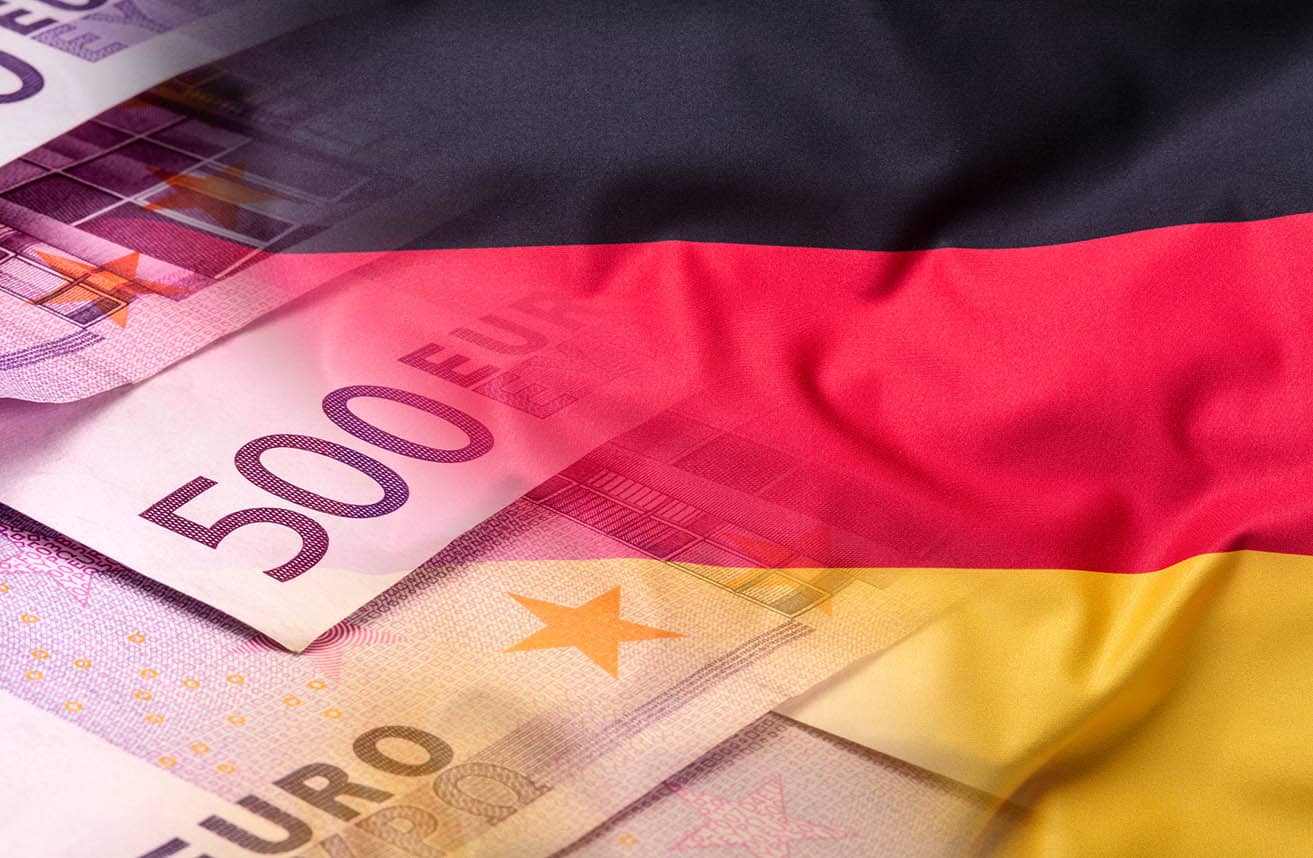Don't Bet on Euro-Dollar Selloff as "Stars Align for German Recovery"
- Written by: Gary Howes

Image © Adobe Images
The Euro is supported by upbeat Eurozone sentiment data and hawkish statements from European Central Bank (ECB) policymakers.
The Euro to Dollar exchange rate defends the 1.07 marker ahead of the weekend, despite an attempted rally by the U.S. Dollar on Thursday following the release of hot U.S. consumer spending numbers.
"The euro managed to hold above $1.07, a 2-week high, despite heightened intraday volatility threatening to extinguish recovery momentum as the latest US data reinforced the belief that the Fed will keep rates higher for longer. Upbeat Eurozone sentiment data and hawkish statements from ECB policymakers kept the common currency supported," says Ruta Prieskienyte, FX Strategist at Convera.
That the Dollar could not hold the gains speaks of a fatigued USD rally and improved Eurozone sentiment, which has lowered the odds of a rapid interest rate cutting cycle at the ECB.
Foreign exchange markets are fully expectant of a June interest rate cut at the ECB, meaning its delivery won't have a significant impact on the Euro. However, what happens beyond June will be important. There has been discussion of a successive rate cut in July, which, if delivered, would probably result in a weaker Euro.
"With a June cut looking likely, it is probably more interesting for investors to start looking at the policy path beyond June. Our call is that the European Central Bank will not cut rates at consecutive meetings and deliver only 75bp of total easing in 2024," says Francesco Pesole, FX Strategist at ING.
Compare EUR to USD Exchange Rates
Find out how much you could save on your euro to US dollar transfer
Potential saving vs high street banks:
$2,750.00
Free • No obligation • Takes 2 minutes
Should the ECB push back against expectations of imminent rate cuts, the Euro will continue to find support.
This is an increasingly likely scenario given the improving confidence towards the Eurozone, and Germany in particular.
"On the macro front, a string of business surveys this week are suggesting that Germany may be tentatively bouncing back," says Prieskienyte. "Stars align for a German recovery".
Most recently, Gfk consumer confidence index rose to -24.2, its highest level since May 2022, beating market expectations.
"The stronger increase in consumer sentiment was mainly due to a boost in income expectations. Rising wages and salaries combined with a recent decline in inflation improves real purchasing power among households, leading to an increased willingness to spend," says Prieskienyte.
April's Ifo index, Germany's most prominent leading indicator, was released earlier this week, suggesting the stars are aligning for a German recovery.
The current assessment read at 88.9 in April, up from 88.1 and above expectations for 88.7. The Ifo expectations component was bullish at 89.9, up from 87.7 and ahead of the 88.9 expected.
ING's Pesole says the strongest argument against EUR/USD falling close to parity is that the economic fundamentals of the euro (like the eurozone’s terms of trade) are nowhere near as bad as they were in 2022 when the pair last broke below 1.00.




